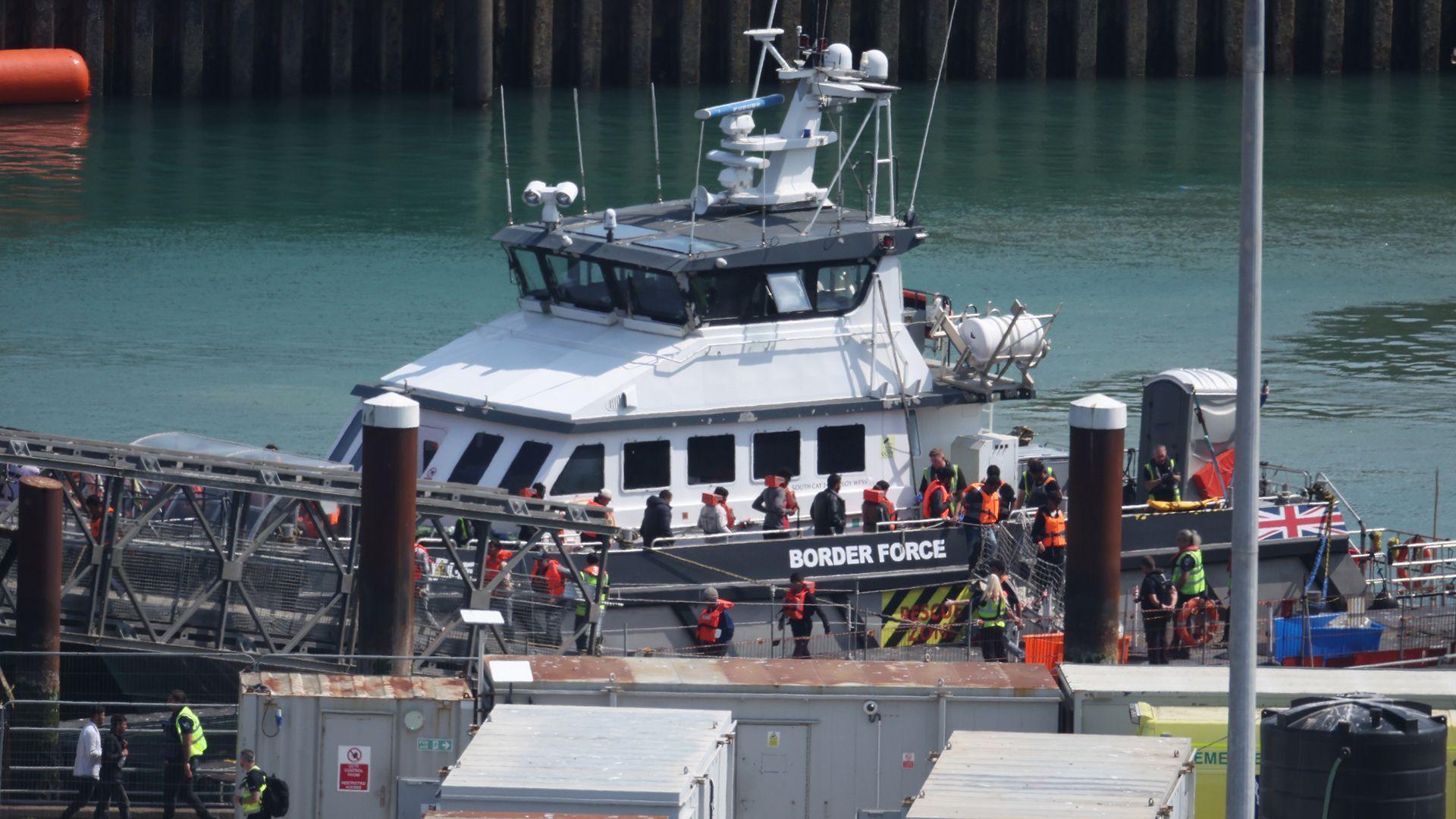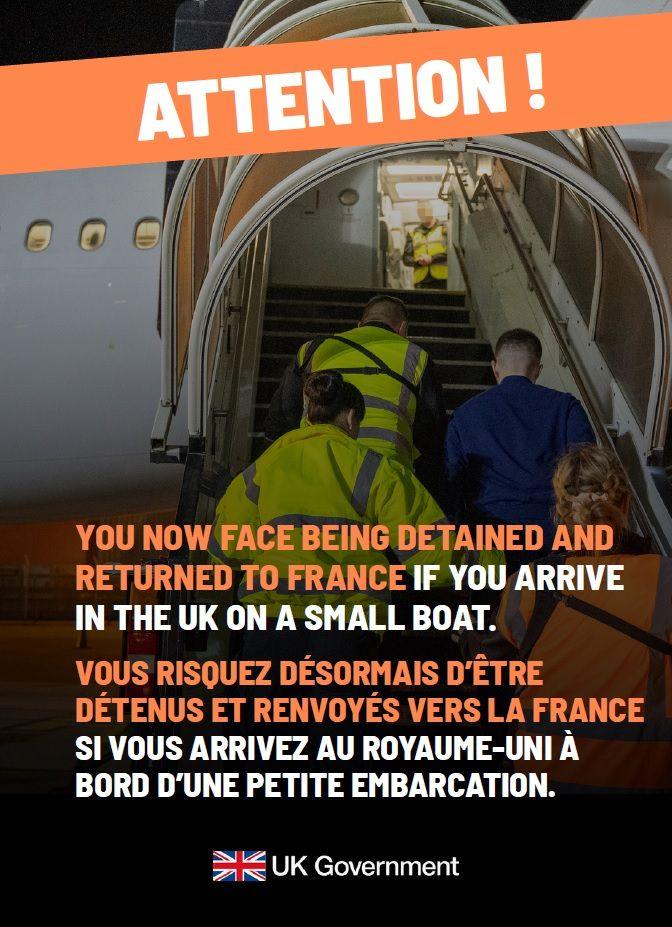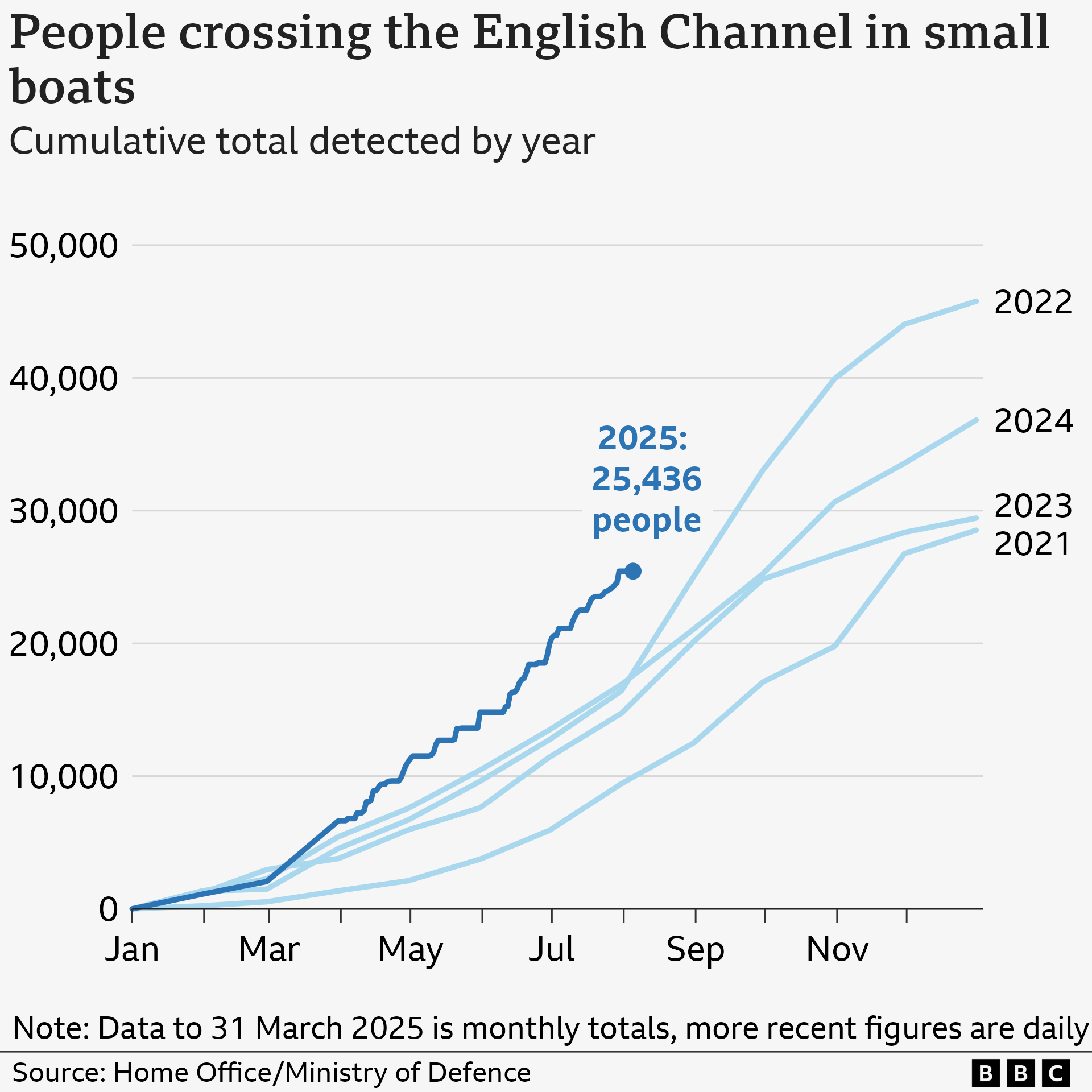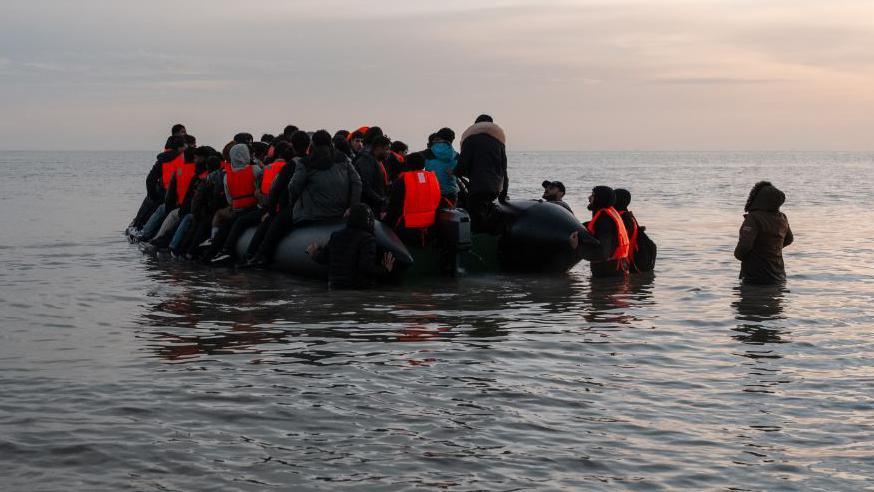Dozens of migrants detained under 'one in, one out' deal with France

A UK Border Force vessel brought migrants into Dover port on Wednesday after intercepting a crossing in the channel
- Published
Several dozen migrants have been detained and could be returned to France within weeks, a government source has told the BBC.
Earlier Home Secretary Yvette Cooper declined to say how many migrants were being detained under the UK's new "one in, one out" deportation deal with France after crossing the English Channel.
The source said more than five nationalities were represented in the dozens held so far but did not give a specific number.
Pictures showed the migrants wearing life jackets disembarking from Border Force boats in Dover on Wednesday, the first day the pilot scheme came into force.
The Home Office also released edited footage which they say shows Border Force and Immigration Enforcement teams enacting the new scheme.
It says the footage shows some of those detained going through the first stages of the pilot process in the last 24 hours, including their initial processing, their biometric and security checks, and their relocation to an immigration removal centre to await their return to France.
Independent journalists were not invited to be present for the filming.
Watch: Home Office release video of Border Force enacting the new migrant returns deal
In an interview on Thursday about the detentions, Cooper said: "The transfers to immigration removal centres are under way as we speak, so we won't provide operational details at this point that criminal gangs can simply use and exploit.
"But no-one should be in any doubt: anyone who arrives from now on is eligible for immediate detention and return."
She said the first migrants could be sent back within weeks and that she was prepared to resist any legal challenges aimed at preventing their removal to France.
Cooper added: "It's the beginning of the pilot and it will build as well over time, but we're also clear that France is a safe country, so we will robustly defend against any legal challenge that people try."
Home Office figures reveal 155 migrants arrived in the UK after crossing the Channel on Wednesday, the day the pilot scheme came into force. The government earlier said those detained would be held in immigration removal centres until they were returned to France.
The BBC has also seen a copy of a poster being distributed in France on Wednesday, warning would-be migrants of the new removals deal.
It shows a man being led onto a plane and reads in English and French: "YOU NOW FACE BEING DETAINED AND RETURNED TO FRANCE IF YOU ARRIVE IN THE UK ON A SMALL BOAT."

The pilot scheme was set up as part of a deal announced by Prime Minister Sir Keir Starmer and French President Emmanuel Macron during his state visit to the UK in July.
Speaking about the first detentions, Sir Keir said: "If you break the law to enter this country, you will face being sent back. When I say I will stop at nothing to secure our borders, I mean it."
The pilot is set to last 11 months and will see the UK accepting an equal number of asylum seekers who have not tried to cross and can pass security and eligibility checks.
UK officials aim to make referrals for returns to France within three days of a migrant's arrival by small boat, with French authorities responding within 14 days.
This is in exchange for an approved asylum seeker in France to be brought to the UK under a safe route.
Adults and families in France are able to express an interest in coming to the UK through an online platform set up by the Home Office.
They must meet suitability criteria, go through a standard visa application process and pass security checks.
If accepted, they would be given three months in the UK to claim asylum or apply for a visa, and would be subject to the same rules for all asylum seekers not allowed to work, study or have access to benefits.
As of 30 July, more than 25,000 people had crossed the Channel in small boats in 2025 - about 49% higher than at the same point in 2024.

UK and international law prevents the government from sending asylum seekers back to their country of origin before their claim has been considered and turned down. However, they can be sent to safe countries prepared to consider their claim.
The Conservatives argue that the new scheme will not be a big enough deterrent and will not return large numbers of would-be migrants.
They also believe that Labour's deal with the French will be less effective than the Rwanda plan proposed by the previous Tory government.
Shadow home secretary Chris Philp told BBC Breakfast that it was a "foolish error" to scrap the scheme which would have seen some migrants sent to Rwanda.
Refugee charity Care4Calais said that the deal was "morally repugnant", and that it would never accept that "in order to offer one person sanctuary, we must first of all permanently deny someone else the right to safety".
The charity said it was preparing a team of caseworkers to support those who had been detained, and its legal team was working on a way to "ensure no one is denied the right to sanctuary".
Additional reporting by Simon Jones, BBC News, South East
Related topics
- Published22 October

- Published4 August

